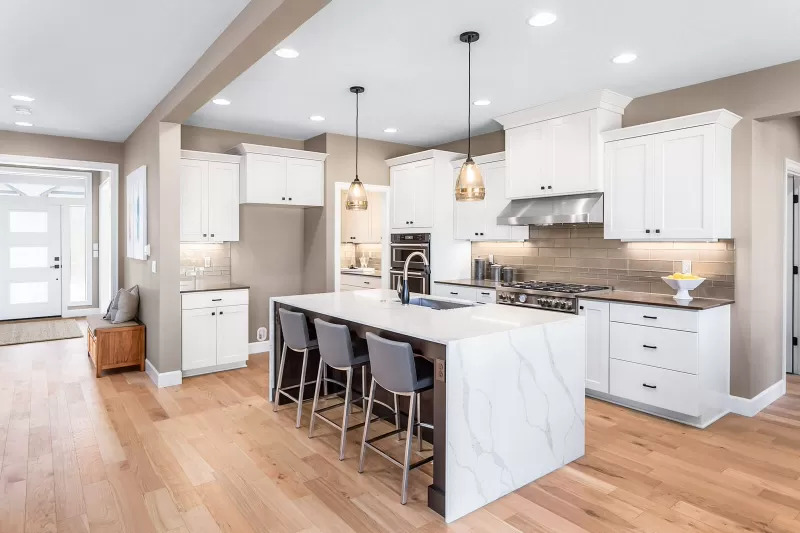The kitchen is the heart of the home, a space where meals are prepared, memories are made, and family and friends gather. If your kitchen is in need of a makeover, a renovation can transform it into a functional, beautiful, and inviting space. In this comprehensive guide, we'll take you through the key aspects of kitchen renovation, from when to consider it to the benefits and the essential steps involved in creating your dream kitchen.
When to Consider a Kitchen Renovation
Outdated Design: If your kitchen design is stuck in the past and doesn't meet your current lifestyle and aesthetic preferences, it might be time for an upgrade.
Deteriorating Materials: Signs of wear and tear, like peeling cabinets, chipped countertops, or damaged flooring, indicate the need for renovation.
Inadequate Functionality: A kitchen that lacks proper storage, counter space, or efficient workflow can be frustrating. Renovating can improve functionality.
Energy Efficiency: Updating appliances and improving insulation can make your kitchen more energy-efficient, leading to cost savings over time.
Benefits of a Kitchen Renovation
Enhanced Aesthetics: A new kitchen can significantly improve the look and feel of your home, making it more attractive and appealing.
Increased Property Value: A well-planned kitchen renovation is an investment that can increase your home's resale value.
Improved Functionality: Customized storage solutions, efficient appliances, and a well-thought-out layout can enhance the functionality of your kitchen.
Energy Efficiency: Upgrading to energy-efficient appliances and better insulation can reduce utility costs.
Steps to a Successful Kitchen Renovation
Assessment and Planning: Begin by assessing your kitchen's current condition and defining your goals. Work with a professional designer to create a renovation plan that aligns with your vision.
Budgeting: Determine your budget and allocate funds to various aspects of the renovation, such as cabinetry, appliances, countertops, and flooring.
Choosing Materials and Fixtures: Select quality materials for your cabinets, countertops, backsplash, flooring, and lighting. Make choices that complement your style and meet your functional needs.
Hiring a Contractor: Find a reputable contractor experienced in kitchen renovations. Get multiple quotes and check references to ensure you choose the right professional.
Permits and Regulations: Check local building codes and obtain any necessary permits before starting the project.
Demolition: Existing fixtures, cabinets, and appliances will be removed to create a blank canvas for your new kitchen.
Installation: New materials, fixtures, and appliances will be installed, ensuring proper plumbing, electrical work, and ventilation.
Finishing Touches: Add final details such as hardware, lighting, and accessories to complete the look.
Quality Inspection: Conduct a thorough inspection to ensure your new kitchen meets safety and quality standards.
A kitchen renovation is an exciting and rewarding project that can breathe new life into your home. Whether you're looking to update the style, improve functionality, or increase energy efficiency, a well-executed kitchen renovation can be a game-changer. Don't hesitate to explore the world of kitchen design, plan your dream kitchen, and embark on the journey to cooking up comfort and style in your home.

